BAGUIO CITY, February 12, 2024 – To foster effective community engagement and collaborative approach to rural development, 28 personnel of the Department of Agriculture – Special Area for Agricultural Development (DA-SAAD) Cordillera Administrative Region (CAR) recently completed a five-day Training of Trainers (TOT) on Community Organizing towards Social Mobilization.
The training, led by SAAD Deputy Director Dr. Pedro Dumaraos Jr. and co-facilitated by the National Project Management Office staff, took place in Baguio City from January 15-19, 2024.
The preliminary segment of the training placed significant emphasis on achieving a shared understanding of development and poverty. This entailed providing participants with a comprehensive perspective on the goals, vision, and mission of the SAAD Program Phase 2, while also highlighting the correlation between personal ideals, empathy, and compassion towards marginalized and underprivileged communities.
“Development can only be realized if the expectations and aspirations of the people are mainstreamed and respected in the process,” said Dr. Dumaraos.
Furthermore, Dr. Dumaros together with the NPMO staff, instilled the concepts of leadership, volunteerism, and commitment in the participants. They utilized exercises and modules that aimed to bring out the leadership qualities in each individual. By demonstrating different leadership styles, highlighting the importance of teamwork, and clarifying the distinction between a boss and a leader, the speakers effectively conveyed these valuable principles.
“You cannot do anything of real value alone, the importance of complementation and not competition between and among team members is important as a team can accomplish more and build more strength,” he added.
The participants were taught about the importance of gaining support and advocating for causes. They learned that having the backing of stakeholders is crucial for SAAD advocacies to influence policy development and reforms through persuasive communication.
Dr. Dumaraos emphasized that “advocacy is meaningless without strong leadership, a united team, and a well-organized structure. Without strength, advocacy cannot be effective. It is a dynamic process.”
The stages of advocacy were also explained, starting with identifying issues, finding solutions, raising awareness, taking action on policies, and evaluating outcomes. This was followed by the art of negotiation, which involves communicating back and forth to reach agreements.
The power of community organizing and the strength of each community were highlighted as important for successful advocacies. The deputy director emphasized that social preparation is an ongoing process, and building long-term relationships through networking is crucial.
Assistant Agricultural Program Coordinating Officer of Mountain Province David Sumalag, expressed gratitude to the DA-SAAD NPMO for providing insights into community organizing and social mobilization, which are applicable in working with SAAD communities.
Meanwhile, SAAD APO Ms. Abigail Bulangen realized through the training that her true passion lies in serving the people, rather than focusing solely on accomplishments.
Mowanah Jovellanos, another SAAD CAR staff member, shared, “We didn’t have social mobilization in Phase 1, but through this training, we were able to reflect on our experiences from Phase 1, including the challenges that shaped us as community officers.”
In conclusion, Dr. Dumaraos thanked the participants for their commitment and active participation throughout the training. He expressed hope that more inspiring stories will emerge from the SAAD-assisted communities in the future through proper community organizing.
“Passion should always be in hearts and minds, unique kayo sa mga banner programs. In this program, we combine culture, belief, attitude, and we follow the social development process,” concluded Dr. Dumaraos.
The TOT culminated with a solemn candle lighting ceremony, accompanied by a resolute pledge of commitment from each participant. This pledge underscored the paramount importance of participatory-centered development principles.
As community development practitioners of SAAD, the participants bear the responsibility of empowering and advancing the farming and fishing communities, with the ultimate aim of enhancing their quality of life and fostering sustainable rural development. ###
Writer: Maria Elena G. Catajan, DA-SAAD CAR Information Officer

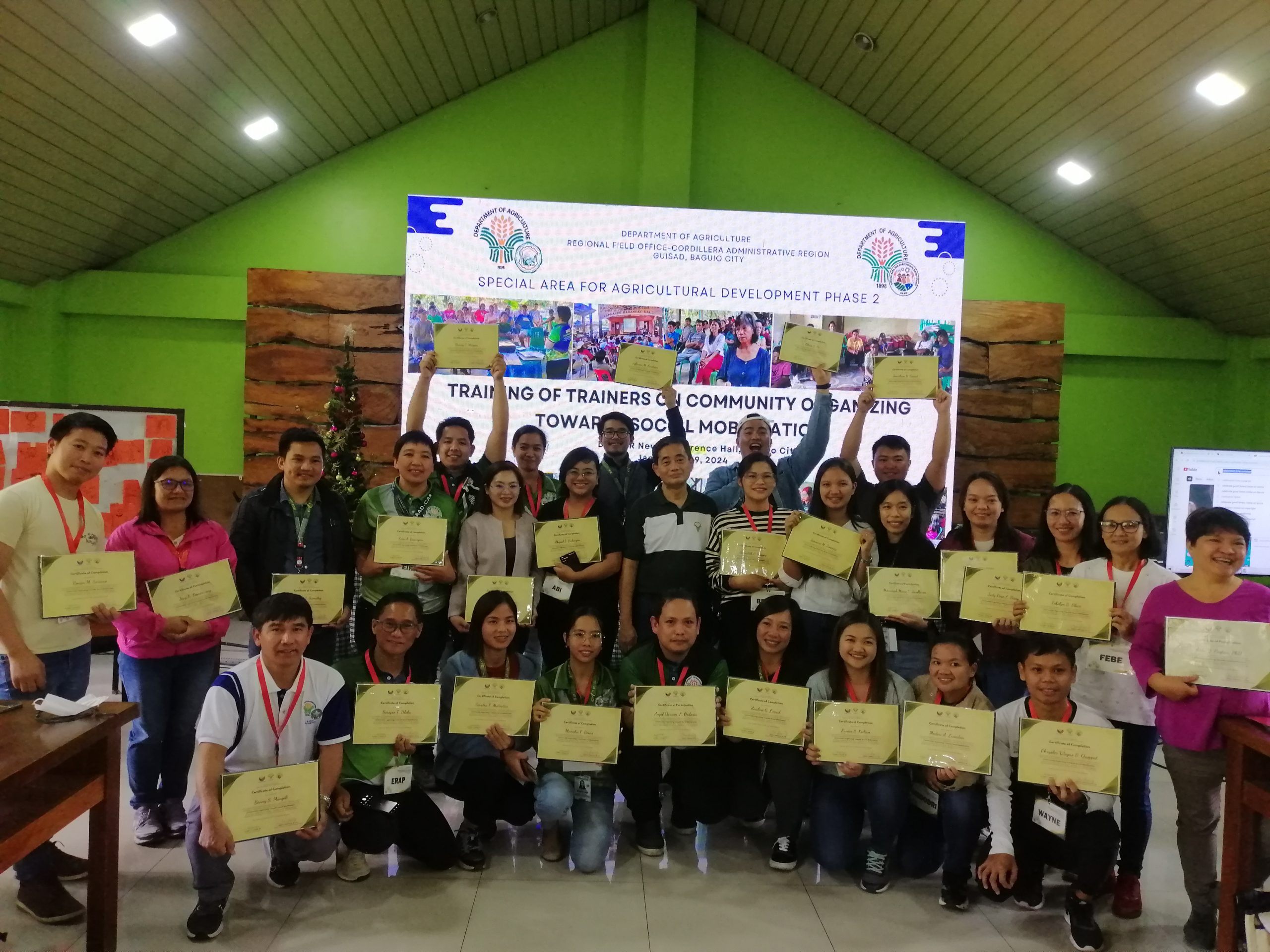
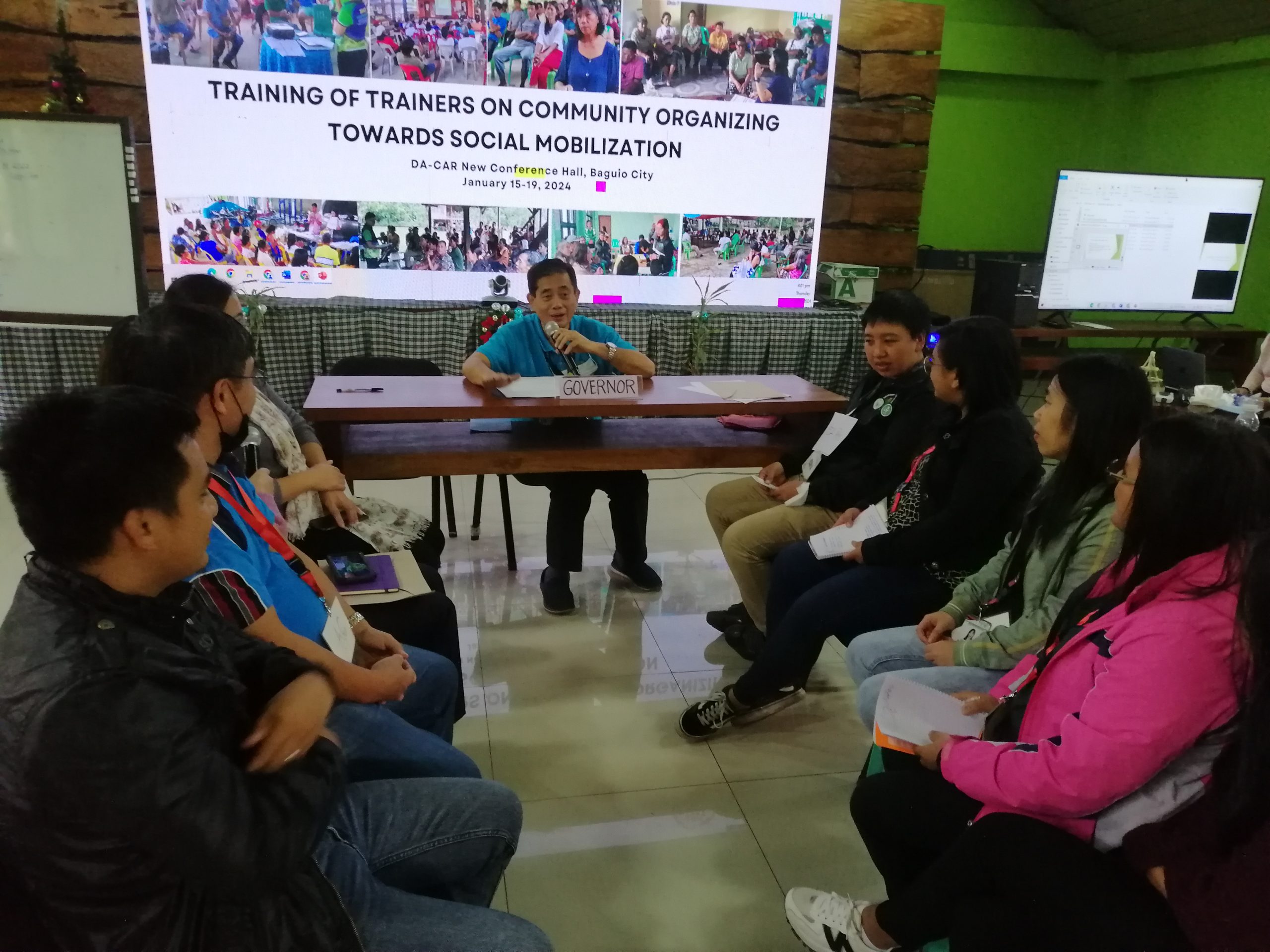
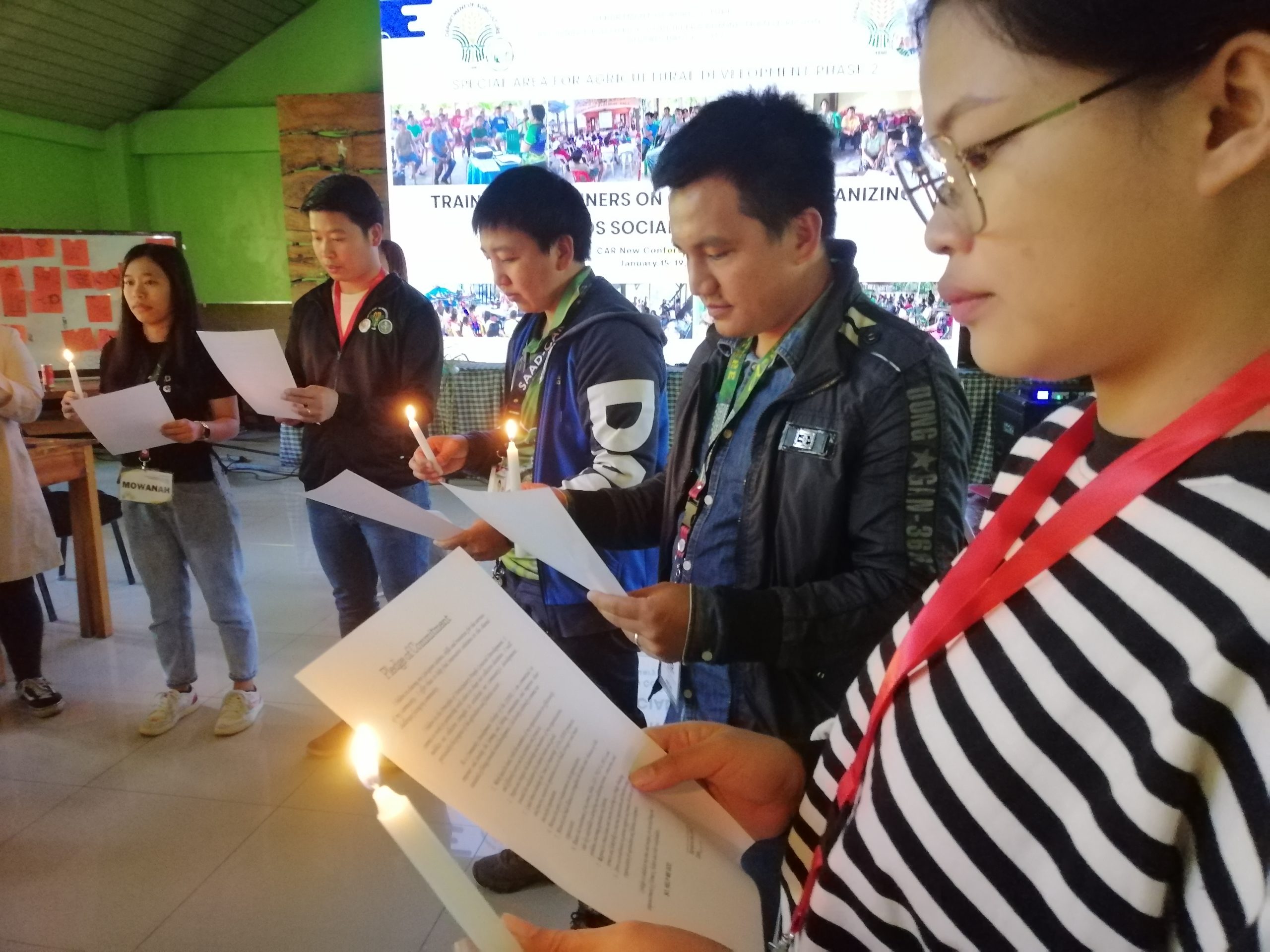
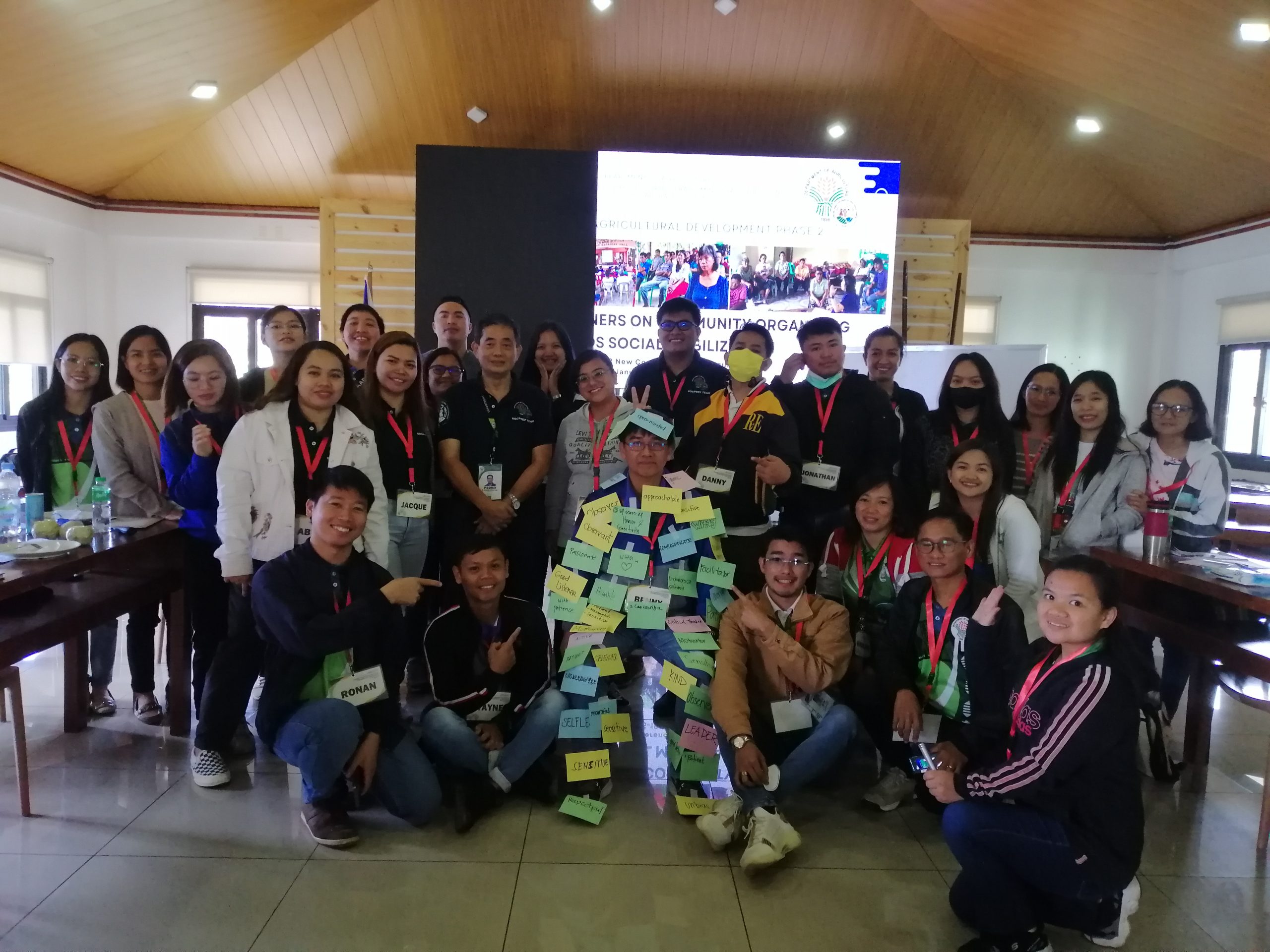
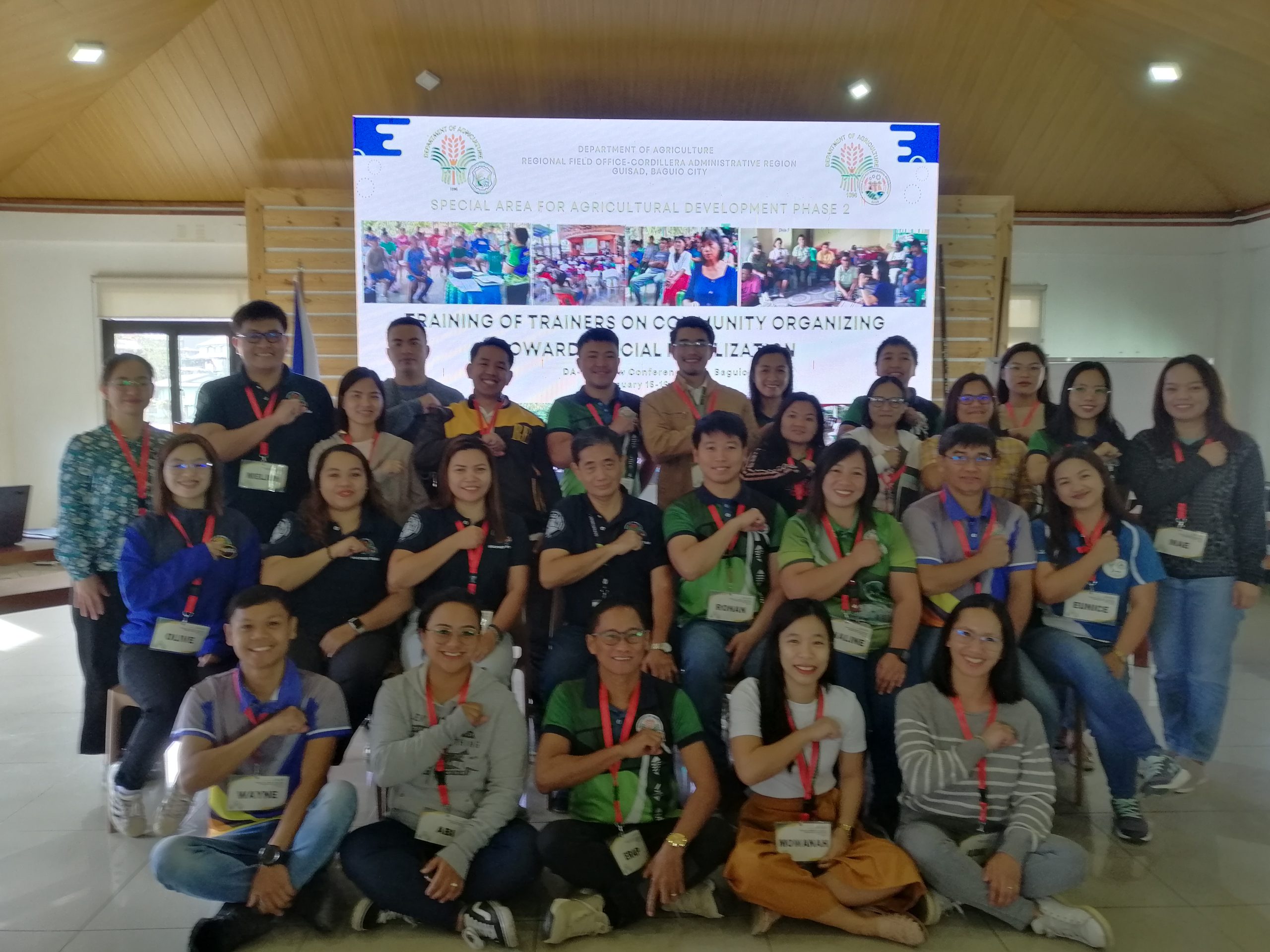



Comments (0)